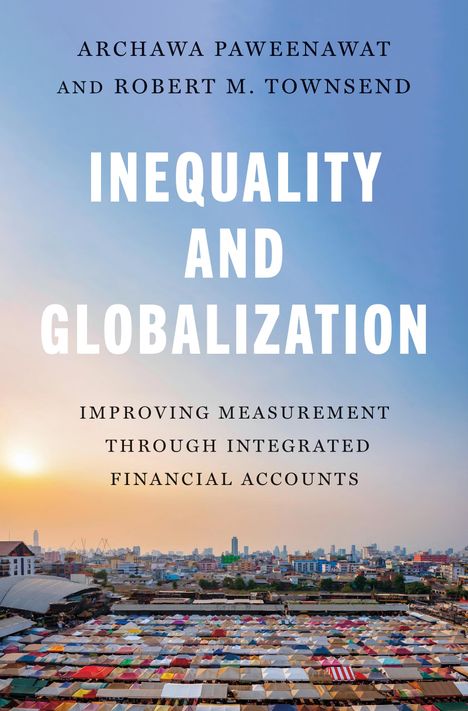Archawa Paweenawat: Inequality and Globalization, Gebunden
Inequality and Globalization
Buch
- Improving Measurement Through Integrated Financial Accounts
lieferbar innerhalb 2-3 Wochen
(soweit verfügbar beim Lieferanten)
(soweit verfügbar beim Lieferanten)
Aktueller Preis: EUR 59,36
- Verlag:
- Princeton University Press, 07/2024
- Einband:
- Gebunden
- Sprache:
- Englisch
- ISBN-13:
- 9780691211022
- Artikelnummer:
- 11567613
- Umfang:
- 240 Seiten
- Gewicht:
- 544 g
- Maße:
- 243 x 168 mm
- Stärke:
- 27 mm
- Erscheinungstermin:
- 9.7.2024
- Hinweis
-
Achtung: Artikel ist nicht in deutscher Sprache!
Klappentext
A remedy for the gap between micro and macro data, making measures of inequality and national income consistent with each other Increasing inequality, the impact of globalization, and the disparate effects of financial regulation and innovation are extraordinarily important topics that fuel spirited policy debates. And yet the facts underlying these debates are of doubtful accuracy. In reality, as Archawa Paweenawat and Robert Townsend show in Inequality and Globalization, there is a large gap between micro household surveys, which measure key outcomes such as inequality, and aggregated financial accounts, which measure macroeconomic totals and growth. Paweenawat and Townsend propose a remedy: integrated financial accounts, in which the flows in income statements, including saving and investment, are consistent with the changes in financial assets and liabilities in the balance sheet at micro and macro levels. None of the leading US micro household surveys or macro accounts meets this criterion. Drawing on extensive data from fieldwork in Thailand, Paweenawat and Townsend show how consistent integrated financial accounts at the individual household and small enterprise level can be created using household and firm survey data. Aggregated to the village level, these accounts can link anecdotal stories of individual households to their financial accounts, document the real impact on them from growth, and assess what would have happened to them if trade and financial liberalization had not been allowed. Paweenawat and Townsend then describe the next logical step: creating integrated financial accounts for the United States, working from the ground up and the top down. Only with these integrated accounts will policy debates on inequality and globalization have a solid factual basis.Biografie (Robert M. Townsend)
Robert M. Townsend is the Elizabeth and James Killian Professor of Economics in the Department of Economics at the Massachusetts Institute of Technology. He previously was the Charles E. Merriam Distinguished Service Professor in the Department of Economics at the University of Chicago, where he remains a Research Professor. His contributions to economic theory include the revelation principle, costly state verification, optimal multiperiod contracts, decentralization with private information, money with spatially separated agents, financial structure and growth, and forecasting the forecasts of others. His contributions to econometrics include the study of risk and insurance in developing countries. His work on village India was awarded the Frisch Medal in 1998.
Archawa Paweenawat, Robert M. Townsend
Inequality and Globalization
Aktueller Preis: EUR 59,36
